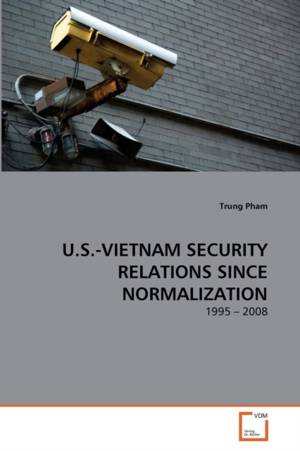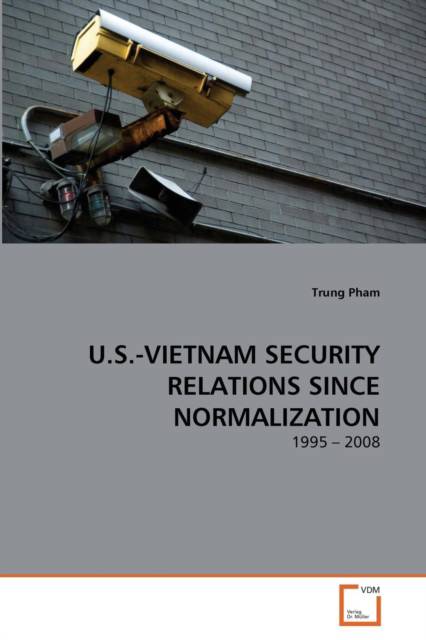
- Afhalen na 1 uur in een winkel met voorraad
- Gratis thuislevering in België vanaf € 30
- Ruim aanbod met 7 miljoen producten
- Afhalen na 1 uur in een winkel met voorraad
- Gratis thuislevering in België vanaf € 30
- Ruim aanbod met 7 miljoen producten
Zoeken
€ 48,45
+ 96 punten
Omschrijving
This work examines U.S.-Vietnam security relations in the post-normalization period, from 1995 to 2008. It argues that the United States and Vietnam have basically overcome suspicions left by the Vietnam War and thus been able to pursue tentative but incrementally expanding security cooperation. This cooperation, seen by both parties as supplementary to economic and trade ties, has been intentionally kept on a slower track. U.S.-Vietnam security cooperation in the post-normalization era has been notable in both traditional and non-traditional security dimensions, ranging from ship port calls to collaborating in fighting epidemics. Meanwhile, the potential for further cooperation is great. Building up mutual trust and understanding would be necessary and desirable for two sides to exploit this potential and deepen their security cooperation in order to serve their own as well as regional peace and stability.
Specificaties
Betrokkenen
- Auteur(s):
- Uitgeverij:
Inhoud
- Aantal bladzijden:
- 104
- Taal:
- Engels
Eigenschappen
- Productcode (EAN):
- 9783639359596
- Verschijningsdatum:
- 1/06/2011
- Uitvoering:
- Paperback
- Formaat:
- Trade paperback (VS)
- Afmetingen:
- 152 mm x 229 mm
- Gewicht:
- 163 g

Alleen bij Standaard Boekhandel
+ 96 punten op je klantenkaart van Standaard Boekhandel
Beoordelingen
We publiceren alleen reviews die voldoen aan de voorwaarden voor reviews. Bekijk onze voorwaarden voor reviews.











